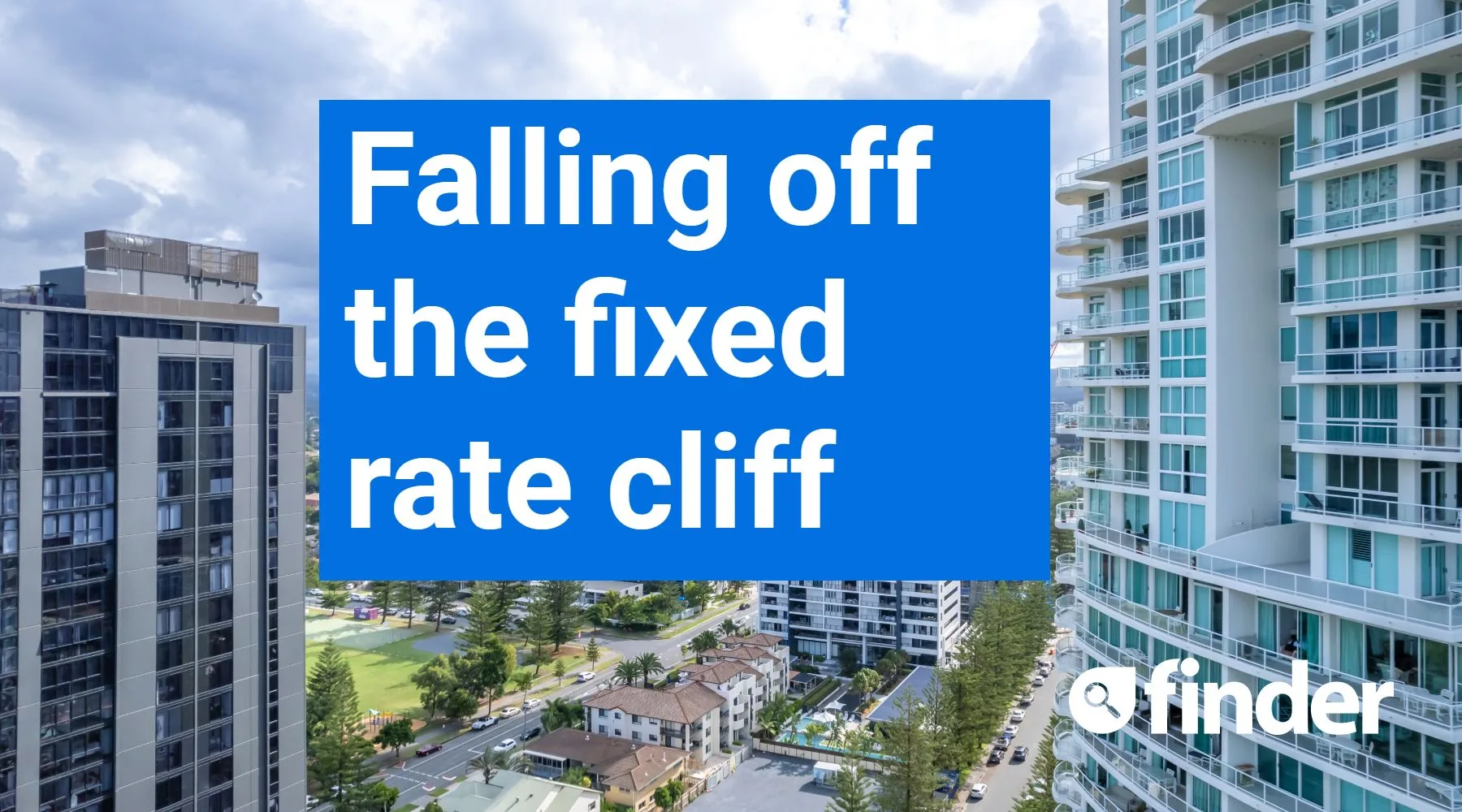Just how bad is the fall off the fixed rate mortgage cliff?

Borrowers who fixed in 2021 have saved themselves thousands of dollars, but now they're facing a massive jump in mortgage repayments.
During the onset of the covid pandemic, Australian borrowers rushed to take advantage of incredibly low fixed rate home loans. And now many of these low fixed rates are coming to end, pushing borrowers onto much higher rates.
But how hard is the fall off the fixed rate mortgage cliff? Here are the numbers.
The fixed rate home loan cliff: by the numbers
- 462,000 fixed rate loans will switch to higher variable rates by the end of 2023, according to Finder's Consumer Sentiment Tracker.
- These loans will jump from rates as low as 2.00% to something closer to 6.00%.
- This could add well over $1,000 a month to the average borrower's loan repayments.
- 40% of Australian borrowers across all mortgage types tell Finder they're already struggling with mortgage repayments.
How hard is the fall off the fixed rate cliff?
Let's imagine a borrower who locked in a 2-year fixed owner-occupier home loan back in August 2021.
Back then, a 2-year fixed rate loan in Finder's database could be as low as 1.79%. And the average home loan size for a borrower that month was $564,905.
With a 30-year loan term and a fixed 1.79% rate, that borrower would have been making monthly repayments of just $2,030.
If that fixed rate ended today, a borrower's best bet would be to switch to a competitive variable rate. And the lowest variable rate in Finder's database right now is 5.39%.
At that rate, your monthly repayments would jump to $3,169. That's an extra $1,139 a month, or $13,668 a year extra.
Of course, every individual borrower starts with a different loan size, and interest rates vary widely for each borrower too.
But it's clear many Australians are struggling to handle higher loan repayments, along with every rise in the cost of living, from fuel to groceries to utilities.
40% of borrowers tell Finder they're now struggling to make home loan repayments.
The Reserve Bank seems confident that most Australian borrowers have savings buffers in place. But it also noted this month that people are putting much less savings into offset accounts or redraw facilities.
The implication being that "some borrowers have been drawing on their stocks of savings to help meet mortgage payments and support consumption in the face of declines in their real disposable incomes."
What should fixed rate borrowers do?
The first thing any borrower with a fixed rate loan needs to do is check their current rate and work out exactly when the fixed rate ends.
Next, start planning for much higher mortgage repayments. While you should be able to shop around and find a better deal than what your current lender is offering, it won't be anywhere near as good as your 2021 fixed rate.
Use a loan repayment calculator and plug in your loan amount and a realistic current interest. Let's go a little high and say 6.00%, just to be safe.
Can you afford these higher repayments? Do you need to re-examine your spending, draw up a budget and find ways to cut back?
And then it's time to compare rates and find a better deal. Even the small difference between a rate of 5.60% and 5.40% is pretty significant, and can equal more than $1,000 a year.
Find a better deal, apply, and switch to the new loan.
Struggling with rising rates? Check out some of the market's lowest home loan rates.
Sources
Ask a question
